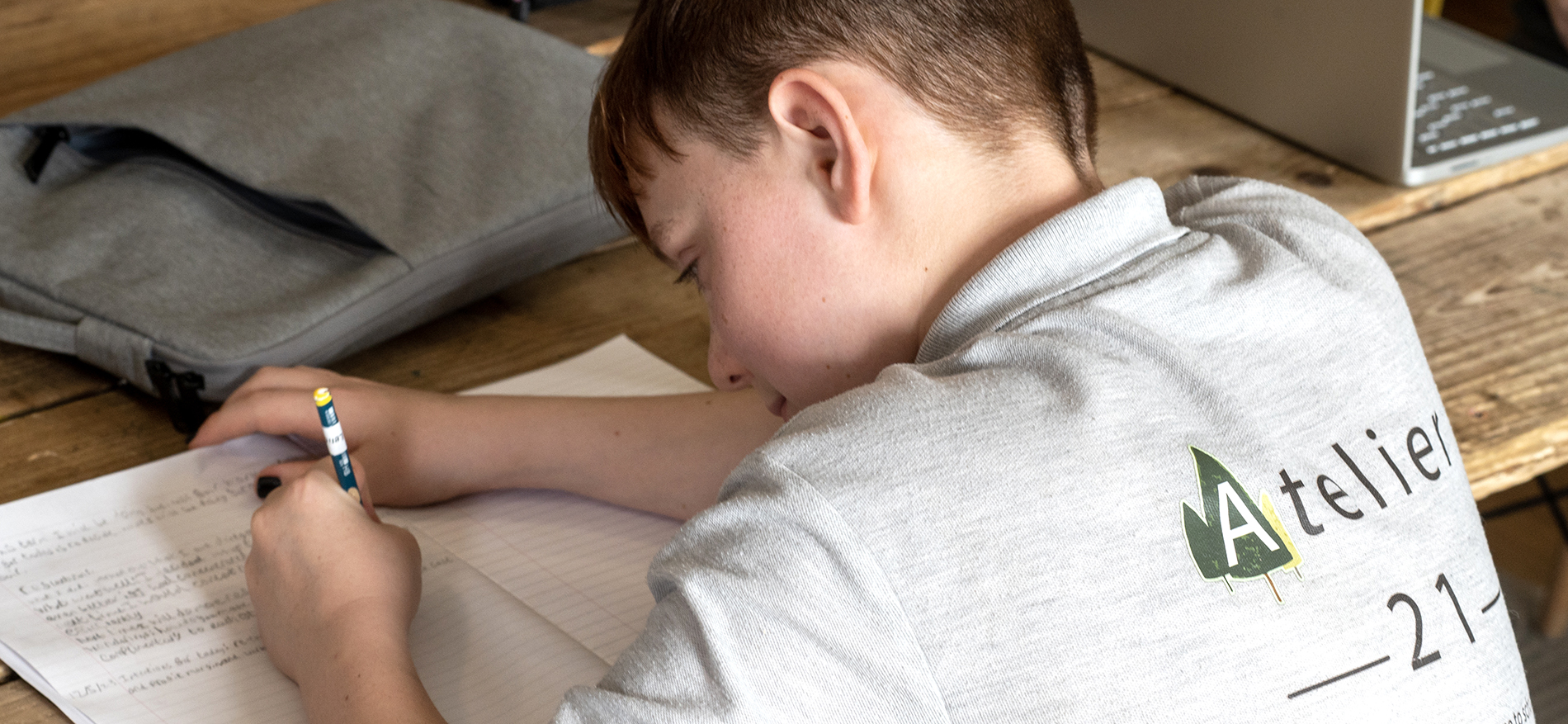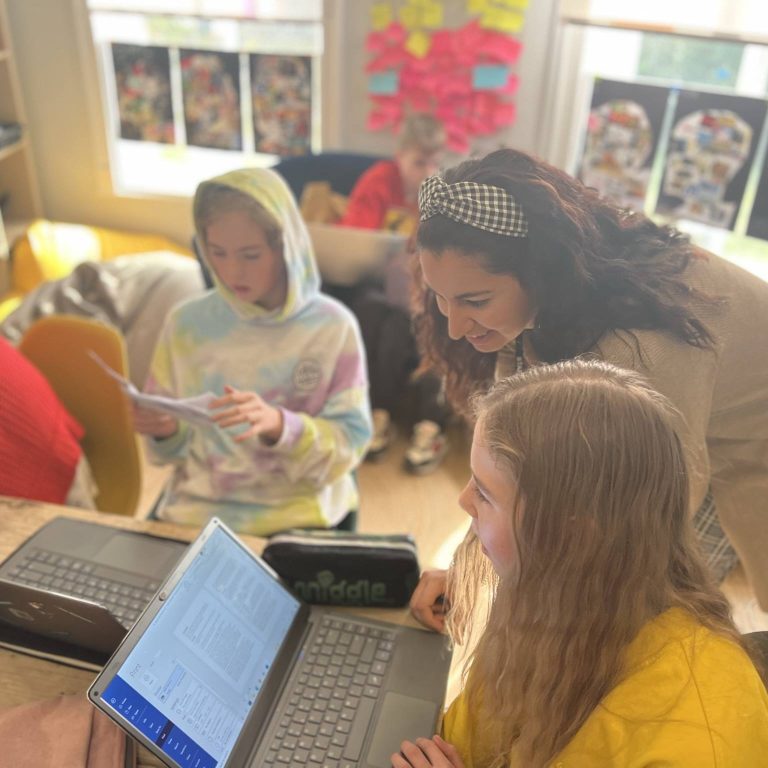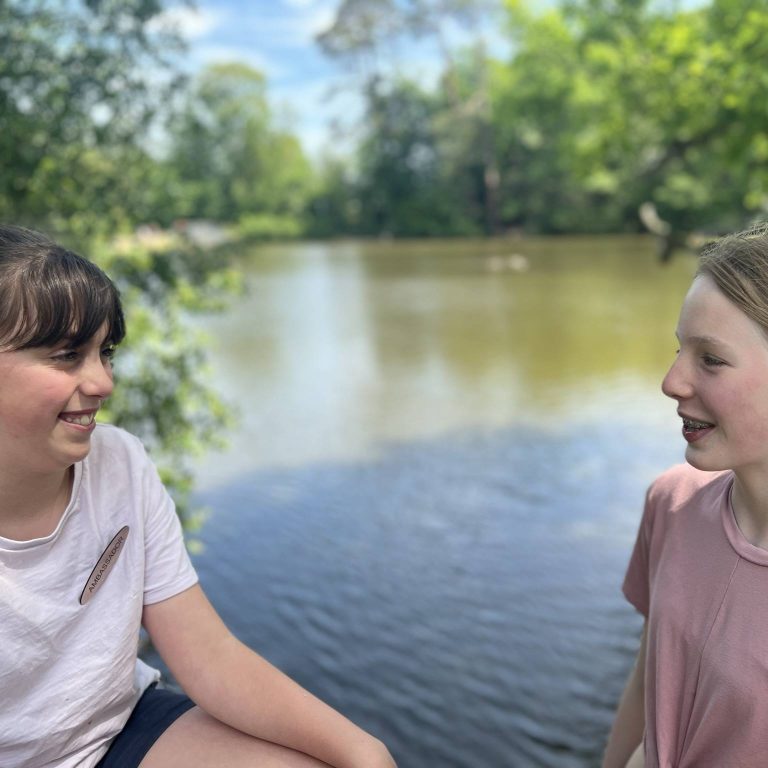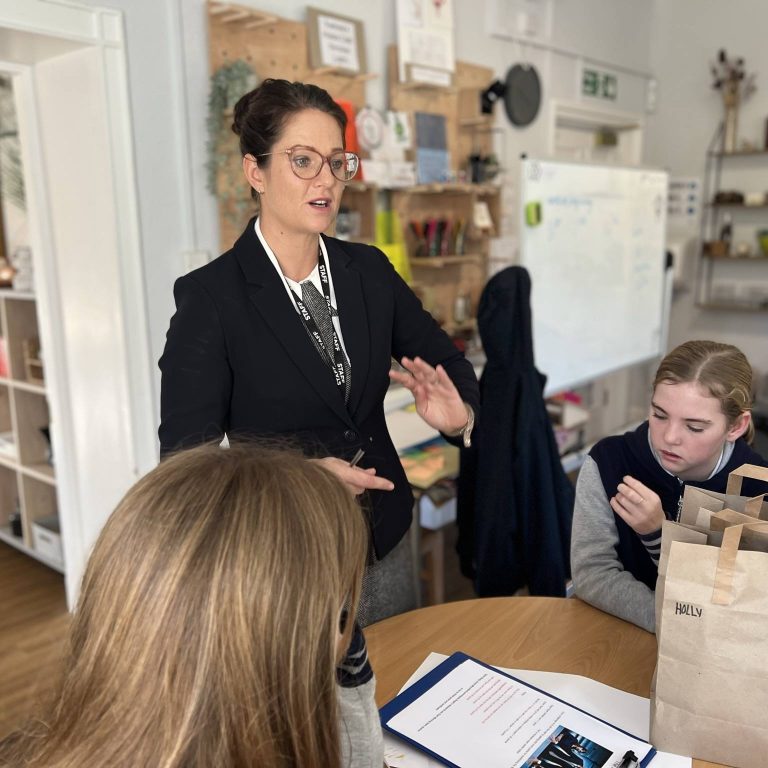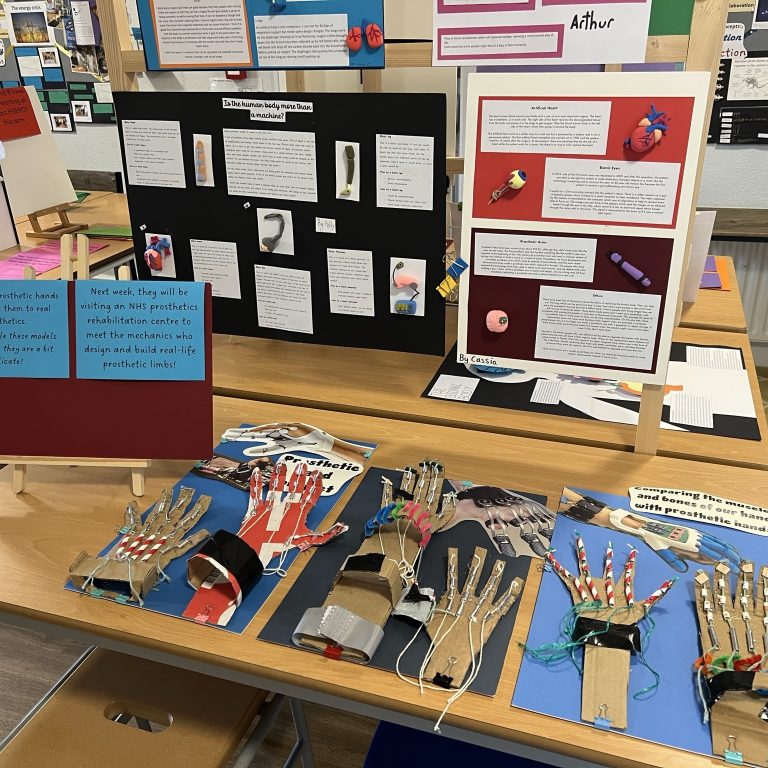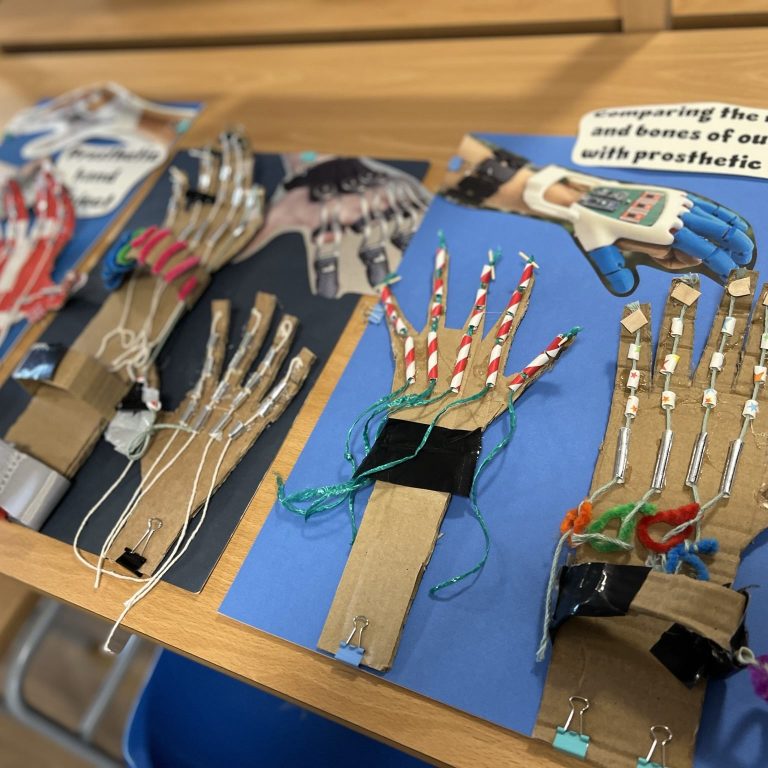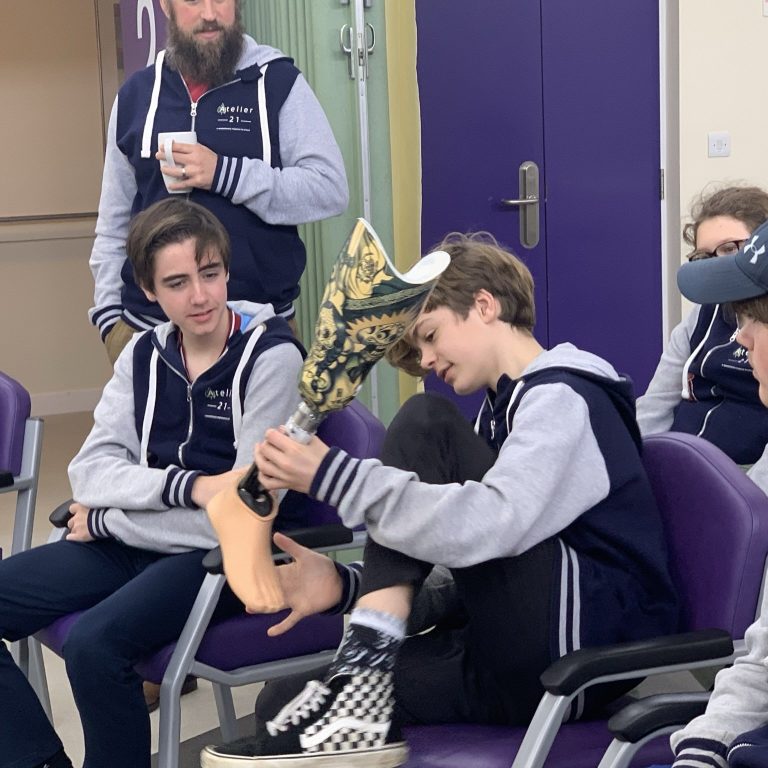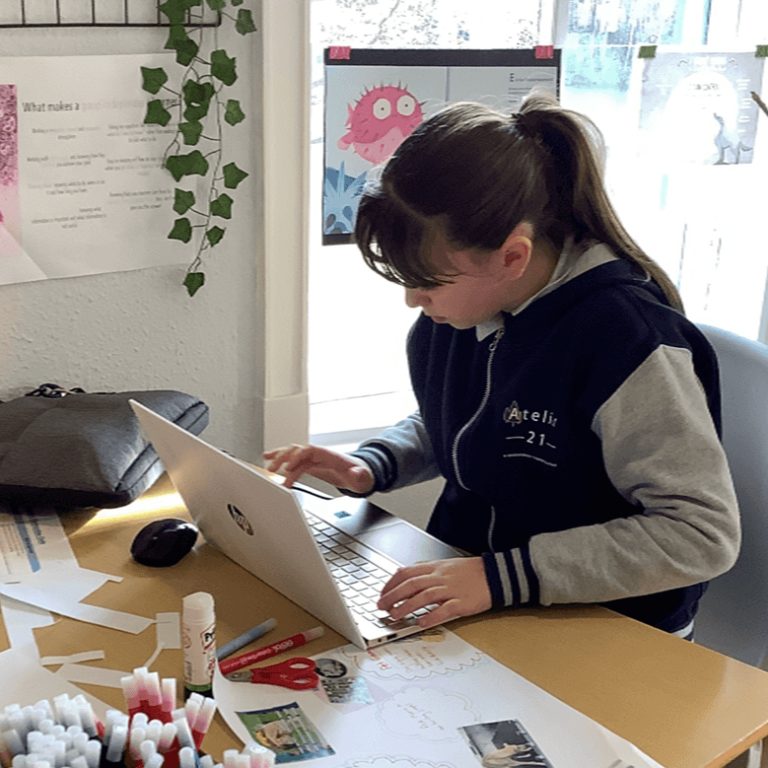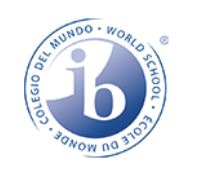
We are now authorised to deliver the Middle Years Programme, with our first cohort sitting their e-Assessments in May 2025. Our school has experienced IB teachers, three of our teachers have taught at more than one International school and two have been IB exam markers. All of our senior school teachers have been given bespoke IB training for the delivery of each subject specialism and regularly participate in standardisation meetings with other IB schools. This ensures higher quality teaching and learning experiences.
Why do we follow the (IB) Programme?
We have chosen to deliver the IB in our senior school instead of GCSEs. This means we now have a world leading recognised exam system which fits our school ethos and approach to learning. Paired with our revolutionary curriculum, which focuses on making learning relevant, meaningful and globally connected, the IB ensures our young learners build 21st Century skills, a broader range of knowledge and interests and the dispositions that young people need to compete and thrive – on top of fantastic exam results.
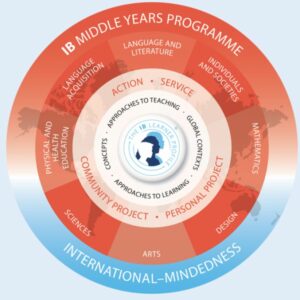
The International Baccalaureate Middle Years Programme (MYP) is designed for young learners between the ages of 11 and 16. It is taught in 108 countries around the world, is accredited by Ofqual as having the same status as GCSEs and respected by universities in the UK and abroad.
The MYP is highly compatible with the Atelier 21 philosophy and enables us to nurture in our young learners the character and strength of mind for them to succeed in adult life. There is a strong focus on ‘learning to learn’ through the systematic development of approaches to learning, skills for communication, collaboration, organisation, self-management, reflection, research, creative and critical thinking.
It also fosters intercultural understanding and global engagement – essential qualities for young people today. Interdisciplinary teaching and learning builds a connected curriculum that addresses the developmental needs of young learners and prepares them for further academic study in an increasingly interconnected world.
GCSEs have highly prescribed curriculums that lend themselves to teacher-led direct instruction, with assessment almost entirely through final examination. By contrast, the MYP assessment is achieved through a wider breadth of activities, including projects and ePortfolios of young learners’ work, with only five exams to sit at the end of Year 11 – allowing more time for overall personal development.
Language Acquisition
At Atelier 21 our young learners learn Spanish as the most widely recognised international language, with the emphasis placed on practical speaking and listening skills that are most useful when working and living abroad.
Language and Literature
We offer young learners a rich curriculum that develops skills in listening, speaking, reading, writing, viewing and presenting. Young learners are introduced to a wide array of contemporary and classic literature, including novels, plays and poetry, with the opportunity to unpack the writing techniques employed by the author, as well as the moral, social, economic, political, cultural and environmental themes within the texts.
Individuals and Societies
This covers all areas of the humanities, including history, economics, geography, philosophy, sociology and anthropology, business management, psychology, and world religions. Initial learning is used as a launchpad for individual and group project work, culminating in a final piece for each unit of study. This might be a presentation, an essay, a piece of creative writing, or a piece of art or design work. Young learners are assessed on their knowledge and understanding, their investigation skills, their communications skills and their critical thinking.
Sciences
This encompasses biology, chemistry and physics, as well as offering young learners the opportunity to pursue a variety of interdisciplinary areas of scientific study, such as environmental science or sports science.
Mathematics
The MYP mathematics framework encompasses number, algebra, geometry and trigonometry, statistics and probability. All Atelier 21 young learners are prepared for either standard or extended mathematics, depending on their natural aptitude and interest, but we encourage any young learners interested in studying Maths for the Higher Level IB Diploma or A Level to work towards Extended Mathematics during the MYP.
Arts
The MYP takes a broad approach to the Arts, incorporating, Visual art, Media, Drama, Music and Dance. At Atelier 21 young learners have a wide range of creative opportunities. We also have some young learners with a strong interest in a particular area that they might pursue outside of school, such as ballet. The MYP enables young learners to incorporate this into their portfolio of work to show their full range of creative talents.
Design
Design challenges all young learners to:
* apply practical and creative thinking skills to solve design problems
* explore the role of design in both historical and contemporary contexts
* consider their responsibilities when making design decisions and taking action
MYP design focuses on a holistic design process rather than final products and solutions.
IB Global Contexts
The subject areas are taught within the six global contexts of:
- Identities and relationships
- Orientation in space and time
- Personal and cultural expression
- Scientific and personal innovation
- Globalisation and sustainability
- Fairness and development
There is a natural synergy between these and the Big Studies that Atelier 21 young learners will be familiar with from Reception to Year 6. Children new to the school in Year 7 quickly find their feet with this interconnected approach to learning.
Community Project
The community project provides an important opportunity for young learners ages 13-14 to collaborate and pursue service learning. Young learners produce a process journal to document their service journey and what they learnt from planning and implementing their community projects.
Personal Project
The MYP personal project is a young learner-centred and age-appropriate practical exploration through a cycle of inquiry, action and reflection. It allows young learners to consolidate their learning throughout the programme. This long-term project is designed as an independent learning experience of approximately 25 hours. Young learners may, if they wish, link their project to one of the global contexts, but this is not mandatory. More on how Atelier 21 approaches these projects is detailed on the next page.
Why have we chosen to apply for the MYP rather than GCSEs?
We are a school centred around the learning experiences of our young learners and the Learning Power Approach and consequently we design our curriculum and our projects around authentic, relevant and child-driven objectives. As we have reflected and reviewed our practise, this would seem at odds with the content driven, memory and test-based model of GCSEs.
The mission statement from the IB states:
The International Baccalaureate® aims to develop inquiring, knowledgeable and caring young people who help to create a better and more peaceful world through intercultural understanding and respect.
To this end the organization works with schools, governments and international organizations to develop challenging programmes of international education and rigorous assessment. these programmes encourage young learners across the world to become active, compassionate and lifelong learners who understand that other people, with their differences, can also be right.
We feel that the MYP will allow our young learners to continue with cross-curricular Project-Based Learning as well as develop mastery skills in core subjects and complete their education at Atelier 21 with a recognised qualification in order to continue their learning at a Post-16 level. The Learning Power Approach that underpins our curriculum enables young learners to embrace challenge and self-regulate, meaning they aren’t immobilised by fear of failure or ‘getting the wrong answer’ in preparation for an exam. This means they have a healthy attitude going into MYP and will be naturally motivated as they understand that getting qualifications is part of the process of creating choices for our lives. They develop higher levels of critical evaluation technique through our project based and self-directed approach to learning, and are more resilient and creative in order to prepare themselves for the process of sitting exams.

